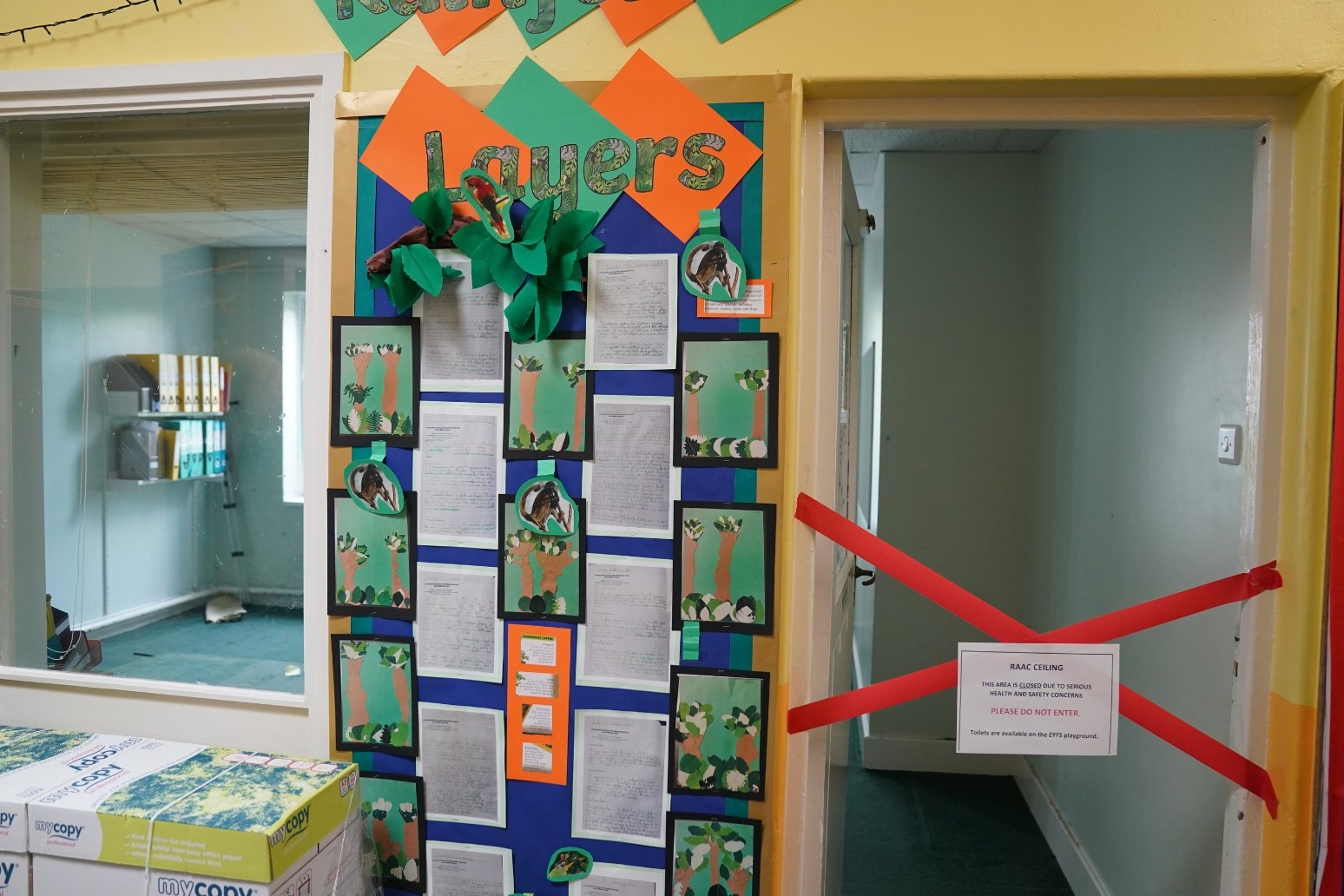
MPs have criticised the “shocking” lack of detail provided by ministers on the crumbling concrete crisis in schools as they warned about the “alarming” state of classroom buildings.
In a report by the Public Accounts Committee (PAC), MPs said “unacceptable numbers of pupils are learning in poorly maintained or potentially unsafe buildings” in England.
They said the school estate had “deteriorated to the point where an alarming 700,000 pupils are learning in a school that needs major rebuilding or refurbishment”, a factor that was “ultimately limiting their educational achievements”.
The cross-party panel, in its The Condition Of School Buildings report published on Sunday, said the lack of basic information provided by the Department for Education (DfE) on the concrete crisis in schools was “shocking and disappointing”.
In August, days ahead of the return from summer holidays, more than 100 schools, nurseries and colleges in England were told by the UK Government to close classrooms and other buildings that contained reinforced autoclaved concrete (Raac).
PAC said it was “extremely concerned” that Education Secretary Gillian Keegan’s department did “not have a good enough understanding of the risks in school buildings to keep children and staff safe”.
The Commons committee said DfE was unable to tell its inquiry how many surveys to identify Raac were outstanding, how many temporary classrooms had been provided to schools affected by the crisis, or say when the issues with the concrete type would be addressed.
Its report recommends the DfE expedite its programme of specialist surveys where Raac is suspected and be clearer on the funding it will provide to headteachers for temporary mitigation measures.
Committee chair Dame Meg Hillier said an “absolute catastrophe” with Raac had been “averted through sheer luck”.
The Labour MP said: “A significant proportion of children in this country are learning in dilapidated or unsafe buildings.
“This is clearly beyond unacceptable, but overcoming the consequences of this deficit of long-term infrastructure planning will not be easy.
“The School Rebuilding Programme was already struggling to stay on track and DfE lacked a mechanism to direct funding to regions which need it most.
“It risks being blown further off course by concerns over Raac and many schools in dire need of help will not receive it as a result.
“The images of classroom ceilings collapsed onto empty school desks released in recent months are not just searing indictments of a deteriorating school estate.
“They are chilling reminders of absolute catastrophe averted through sheer luck.
“Given the poor condition of so many of these buildings, the Government’s prime challenge now is to keep the safety of children and staff absolutely paramount.”
Daniel Kebede, general secretary of the National Education Union, said the Tories had “slashed spending on the school estate” since 2010, issuing a “cumulative cut” of about £43 billion.
“The Raac crisis exposes the folly of letting so much of the school estate fall into disrepair,” he said.
“However, the Government has yet to commit to increase spending or a timetable for the repair of schools with Raac.
“The DfE would like to give the impression that they are now acting with speed to remedy the situation, but in truth they are still asleep at the wheel, now regularly missing their own deadlines to update the public.
“In the autumn statement we need to see substantial new money to tackle a crisis in school buildings which has grown on this Government’s watch.
“Parents, children and our members deserve better.”
Paul Whiteman, general secretary at the National Association of Head Teachers, said: “It beggars belief that nearly three months after the Government’s belated, panicked crisis response to the Raac situation, schools and parents still cannot have confidence that ministers understand or have a plan to deal with the full extent of risks posed by deteriorating school buildings.”
A Department for Education spokesperson said: “We do not accept the committee’s assessment – the Government has taken swift action, responding to new evidence, to identify and support all schools with Raac to ensure the safety of pupils and teachers.
“We have now gathered questionnaire responses from all education settings in the affected areas. The vast majority have no Raac and of those that do, most are providing face-to-face education with only a small handful providing a form of remote education for a short period..
“We have been clear that we will do whatever it takes to remove Raac from the school and college estate. We are working closely with schools with Raac to ensure remediation work is carried out and disruption to learning is minimised.”
“Our School Rebuilding Programme is continuing to rebuild and refurbish school buildings in the poorest condition, with the first 400 projects selected ahead of schedule.”
Published: by Radio NewsHub









